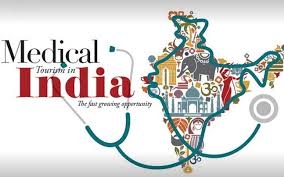
 Excess weight and health problems are synonymous to each other. Due to acceptance of Western influences, there has been a spike in number of non-pregnant women who are either overweight or obese in India, says Dr Biswanath Gouda, a well-known Laparoscopic HPB and Bariatric Surgeon, as he presents an analysis of the correlation between weight and multitude of health issues among women across the country.
Excess weight and health problems are synonymous to each other. Due to acceptance of Western influences, there has been a spike in number of non-pregnant women who are either overweight or obese in India, says Dr Biswanath Gouda, a well-known Laparoscopic HPB and Bariatric Surgeon, as he presents an analysis of the correlation between weight and multitude of health issues among women across the country.
Obesity is the new disease, imported in India due to acceptance of Western influences like addiction to fast food, imbalanced food choices and sedentary lifestyles. The World Health Organisation (WHO) estimates that more than one billion people are overweight, with 300 million meeting the criteria for obesity. Twenty-six percent of non-pregnant women ages 20 to 39 are overweight and 29 per cent are obese. Ill effects of excess weight on womens health are well-known, and is difficult to tackle as its multi-factorial in origin.

Weight and Diabetes: The risk of diabetes increases with the degree and duration of being overweight or obese  and with a more central or visceral distribution of body fat. Obesity is also an independent risk factor for the development of heart problems in women.
and with a more central or visceral distribution of body fat. Obesity is also an independent risk factor for the development of heart problems in women.
Obesity affects fertility throughout a womans life. Abdominal obesity is linked with Poly Cystic Ovary Syndrome/Disease (PCOD/PCOS) due to increased insulin levels resulting in hormonal imbalance and menstrual cycle abnormalities.
Weight and Back Pain: Obesity has been implicated in the development or progression of low back pain and knee osteoarthritis in women due to direct mechanical stress on the intervertebral discs and the indirect effects of atherosclerosis on blood flow to the lumbar spine. Obesity also leads to an excess load on the joint, increased cartilage turnover, increased collagen type 2 degradation products, and increased risk of degenerative meniscal lesions.


happy mother with baby
Weight and Fertility: Obesity affects fertility throughout a womans life. Abdominal obesity is linked with Poly Cystic Ovary Syndrome/Disease (PCOD/PCOS) due to increased insulin levels resulting in hormonal imbalance and menstrual cycle abnormalities. Obese girls frequently experience the onset of puberty at a younger age than their normal-weight peers. Pre-pregnancy obesity contributes to the development of many pregnancy complications including pregnancy-induced hypertension, preeclampsia, gestational diabetes, c-section, and neonatal death.
Maternal obesity is associated with a decreased intention to breastfeed, decreased initiation of breastfeeding, and decreased duration of breastfeeding. Obese women are at greater risk of a delay in milk production, which may be related to decreased rates of breastfeeding initiation.
Weight and Cancer: Mounting evidence that obesity is a risk factor for developing gynecologic and breast cancers. Obese women with cancer may have decreased survival because of later screening, comorbid illnesses, or poorer response to treatment. Endometrial, cervical, ovarian and breast cancers have been reported on the higher side in obese women as compared to normal weight women across the world.
Bariatric surgery or weight loss surgery or metabolic surgery is an excellent treatment options for women, especially who have been defeated by several diet plans and exercise regimes in the past. Bariatric surgery (Sleeve Gastrectomy or Roux en Y Gastric Bypass) acts like a tool that helps in reversing several negative metabolic affects of excess weight and promotes overall resolution of diabetes, hyperlipidemia and hypertension.
Meta analysis studies suggests that bariatric surgery results in improved fertility; the strongest evidence is in women with the polycystic ovarian syndrome, where biochemical studies showing normalization of hormones after surgery support case series data. Observational studies (retrospective cohorts and case series) suggest that fertility improves following bariatric procedures and weight loss; similar to that seen when obese women lose weight through nonsurgical means.
In the US, the Nationwide Inpatient Sample (NIS) study, a national sample of over 1,000 hospitals, to measure the trend in the number of women of reproductive age who underwent bariatric procedures from 1998-2005 showed a six-fold increase in bariatric surgery inpatient procedures from 1998 to 2005. Women age 18-45 accounted for about half of the patients undergoing bariatric surgery; over 50,000 have these procedures as inpatients annually. Similar nationwide data is still not available in India for comparison but the number of bariatric surgeries has definitely increased in last 10 years in Mumbai, Bengaluru, Chennai and Delhi. As the awareness of bariatric surgery and its positive effects percolates more in women population, and with the growing incidence of diabetes and metabolic syndrome, we are at the critical stage to witness an exponential increase in bariatric surgery in India.
Be a part of Elets Collaborative Initiatives. Join Us for Upcoming Events and explore business opportunities. Like us on Facebook , connect with us on LinkedIn and follow us on Twitter , Instagram.












